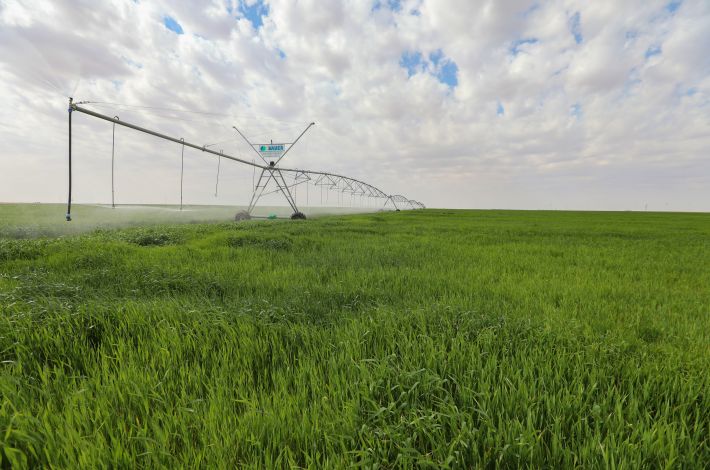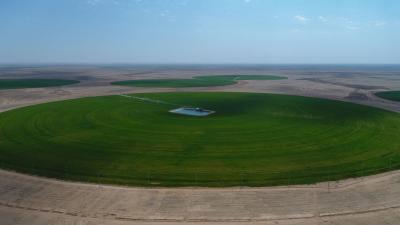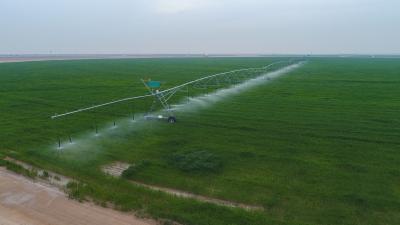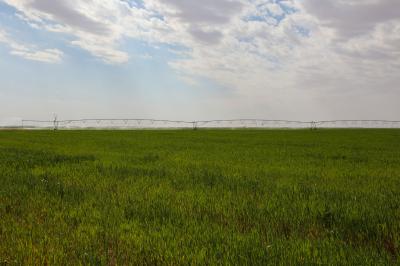The administration of the Al-Saqi Project in the al-Abbas's (p) Holy Shrine announced the increase of its cultivated area with the high-grade wheat of the class of Baghdad Aba / 22, which is characterized by high specifications and achieved good laboratory results, so new areas have been added to cultivate this crop.
The head of the Engineering Projects Department at the Holy Shrine; engineer Dea' Majeed Al-Sa'egh explained to the al-Kafeel Network: “The Al-Saqi project is progressing steadily within a clear business strategy, and after we achieved good results in the last agricultural season, we started this season to increase the area planted with wheat, where spaces were created within the project's land and providing it with 6 additional systems of axial sprinkler, because the irrigation is carried out in this modern way by relying on the water of the wells dug in the project, so that the total number of them (9) sprinklers working to irrigate the wheat that was sown.
The project manager, Mr. Zaki Sahib, added: “In the previous agricultural season, we achieved a boom by planting this type of wheat with high ranks in terms of the product, its abundance and high yield, and this constituted an incentive for us to continue the work, so other areas were added to this project, at the rate of (80) dunums for each of the 6 sprinklers in addition to the previous three sprinklers, which have a capacity of (120) dunums, and this addition was made after a comprehensive study of the nature of the land and its suitability, then preparing it for cultivation. And thank God, what has been achieved until now looks good, as we followed modern agricultural scientific methods and mechanisms, with a food and fertilizer program prepared by Khair Al-Joud Company, coupled with a modern watering mechanism, which is the axial moving pumps.
Zaki explained: "The work of preparing the land included making sure of its suitability for cultivation by taking samples from several places of the soil for laboratory testing, knowing the extent of its salinity and suitability, then determining the area to be cultivated, after which the seeds that were determined by the Iraqi Ministry of Agriculture were brought then sowing them using a modern seeding method ".



